HOME > Basketball
Why is the NBA not as popular as before in China
8:33am, 24 May 2025【Basketball】
1. Political friction: The long-tail effect of the Morey incident
In 2019, Rockets manager Morey's remarks on Hong Kong triggered a strong rebound between the Chinese government and the public. CCTV suspended NBA events for 15 months. Although Tencent resumed broadcasts, it deleted 30% of the games (according to data from the South China Morning Post).
Brand cutting effect: More than 10 Chinese sponsors including Anta and Li Ning have terminated their cooperation with the Rockets, and the NBA China Championship has been cancelled to date, resulting in the breakdown of localized promotion of the event.
Public opinion split: Weibo survey shows that 58% of Chinese fans have reduced their view of the NBA after the incident (Global Times data), and the labeled perception of "watching the NBA = unpatriotic" among young people spread.
2. The rise of the local league: CBA's commercial countermeasures
Capital injection: CBA introduces salary cap (2020) and draft reform, sponsorship revenue in the 2022-23 season reached 1.08 billion yuan (17% year-on-year), and Migu's five-year 2 billion broadcast contract set a new record.
Star naturalization: Jeremy Lin and Anderson Valaijo and other former NBA players joined forces with local stars such as Yi Jianlian and Guo Ailun to form a "superstar effect at home".
Digital operation: Douyin CBA topic views exceed 60 billion times (2023 data), and short video highlights and interactive gameplay are more in line with Generation Z consumption habits.
3. NBA itself iteration: aesthetic fatigue and technical disputes
Game style alienation: the proportion of three-pointers soared from 16.9% in 2000 to 39.2% in 2023, and traditional inside confrontations disappeared. A survey by Sports Illustrated showed that 63% of Chinese old fans believed that "the game became like a video game."
Star Fault Crisis: The "feeling fans" accumulated in the era of Yao Ming and Kobe have not been completely transformed into the new generation such as Antetokounmpo and Doncic. TikTok data shows that the interaction volume of content related to Jonas Valanciunas is only 1/3 of that of Zhou Qi.
Referee penalty dispute: The 2023 playoff misjudgment rate increased by 11% year-on-year (Second Spectrum data), and the number of readings on Weibo #NBA Black Whistle# has exceeded 800 million times.
4. Social and cultural migration: structural transfer of attention economy
Esports impact: The peak audience of the League of Legends LPL League in the 2023 finals reached 270 million, surpassing the 120 million NBA finals (China regional data).
Short video diversion: Although the number of fans of the official Douyin NBA account (29 million) is high, the live viewing time has dropped by 42% year-on-year (2023 QM report), and users prefer 3-minute highlights to spend.
The rise of subculture: immersive entertainment such as blind boxes and script killing seizes the leisure time of the group aged 18-25, and the social currency attributes of NBA watching games have weakened.
5. Changes in the business ecology: From national carnival to circle consumption
Pay wall dilemma: Tencent Sports membership annual fee increased from 228 yuan to 418 yuan (2020-2023), resulting in the loss of student groups and the surge in users of the chain-stealing platform by 20 million (iResearch Consulting estimate).
Star endorsement shrinks: NBA players' endorsement in China has dropped sharply from 47 in 2019 to 9 in 2023, and Anta has turned its resources to Winter Olympic stars such as Gu Ailing.
Offline scenarios faded: NBA theme stores have shrunk from 120 at its peak to less than 30, and the average daily passenger flow of Beijing Wukesong Basketball Park has dropped by 65%.
Data comparison: Quantitative evidence of landslide attention
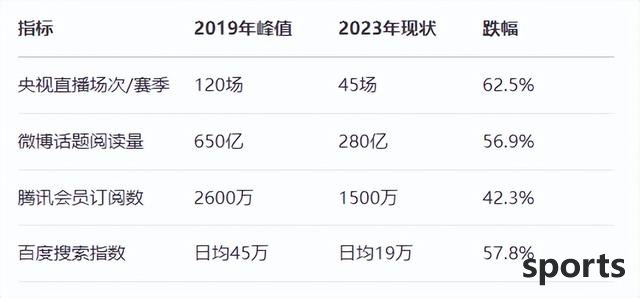
Future trend: Potential path for the NBA's recovery in China
Political desensitization strategy: downplay the voice of team managers and accelerate the construction of youth training camps with the Chinese Basketball Association (such as the Haikou NBA basketball school that has been landed).
Content localization transformation: launching a customized Chinese commentary program, ByteDance is negotiating with the NBA to develop the AR viewing function.
Intergenerational inheritance of stars: Betting on new stars such as Wenban Yama who have the characteristics of "cross-dimensionality" have attracted 2 million fans on the first day of its opening of TikTok account.
Sinking market penetration: Cooperate with Pinduoduo to launch county basketball leagues to replicate the successful experience of the NBA African League.
NBA's cold reception in the Chinese market is essentially a typical case of the failure of localization of global cultural products. When basketball evolved from a "bridge between China and the United States" to a "battlefield of values", its recovery not only required adjustments in business strategies, but also needed to reconstruct the foundation of cultural empathy - this may be more difficult than the era when Stern handed a videotape at the gate of CCTV.
Related Posts
- As expected! Reporters posted netizen prediction votes: 60% successfully predicted that James would not announce his retirement.
- A star who may retire in the NBA in the past five years. Time always says goodbye
- +1! The fourth player this summer goes abroad and joins the overseas league and is expected to become the next Yang Hansen
- Adebayo s girlfriend is too strong: He won 6 consecutive victories with 30+16, breaking the record and becoming the first person in WNBA history
- The Chinese men s basketball team will see a blowout talent in the next Olympics, and Yao Ming s dividends will gradually be reflected!
- NBA Rockets News: Renewal with Tate
- Wiggins takes a family on vacation and earns 250 million yuan. The Lakers want to trade him, and his wife has a good figure
- Heroes cherish each other! Pierce praised Kobe as the second Jordan, saying that defending him is very stressful
- NBA Playoffs: Unexpected 3-1, Kaiyong is in trouble, Nuggets Thunder King Mountain
- Chasing dreams and mocking Dillon was criticized by American netizens! James was caught in a gunfire!
Hot Posts
- As expected! Reporters posted netizen prediction votes: 60% successfully predicted that James would not announce his retirement.
- A star who may retire in the NBA in the past five years. Time always says goodbye
- +1! The fourth player this summer goes abroad and joins the overseas league and is expected to become the next Yang Hansen
- Adebayo s girlfriend is too strong: He won 6 consecutive victories with 30+16, breaking the record and becoming the first person in WNBA history
Recommend

Rockets become a hot commodity in the opening game and Christmas game! Durant returns to the top star? But the team has no intention of renewing the contract
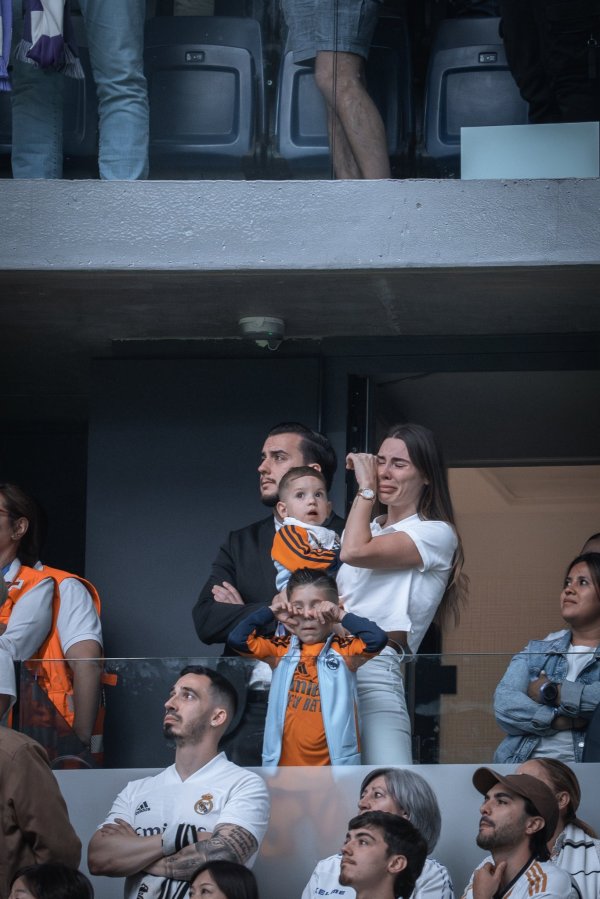
Farewell to the legendary moment! Valverde s wife and children cry affectionately in the stands
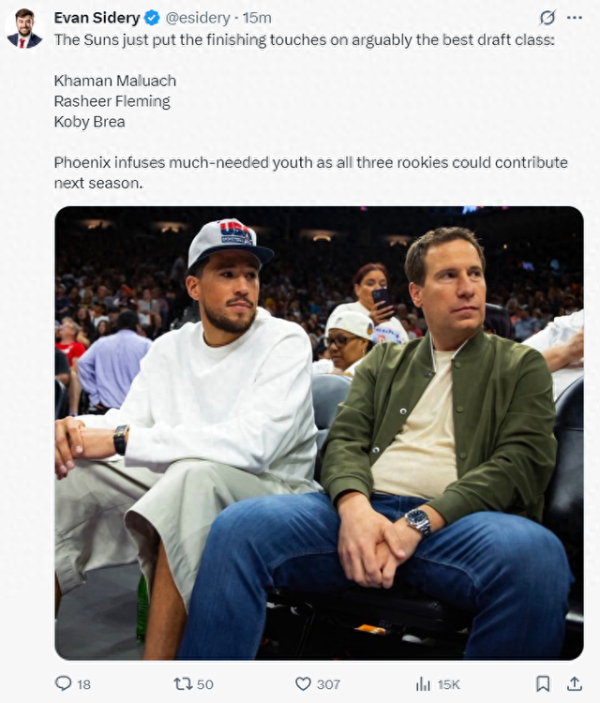
Meiji praised the Sun s perfect operation: Choose 3 talented stars + exchange for Marvel, dealing with Bill selling Allen

The Rockets former player talks about Durant: He easily scored 25 points per game, and he is stronger in the fourth quarter! He can only double-team him with two players

Knicks player Jaylen Brunson was interviewed and talked about teammate Carl Anthony Towns
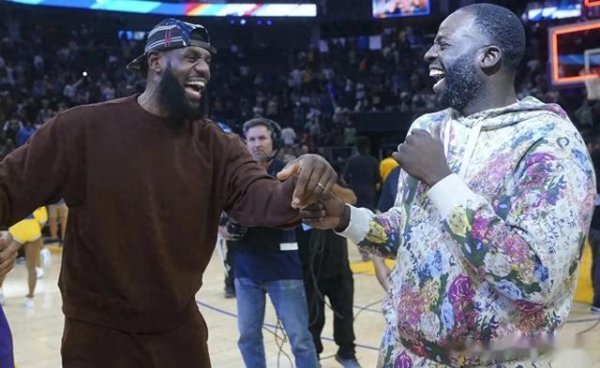
Release the past grudges! Zhanku should be combined, Butler switches alone, Green can t leave, making money and competing for the championship

Beverly: People say Harden is selfish but this is his second salary cut and he doesn t get the credit
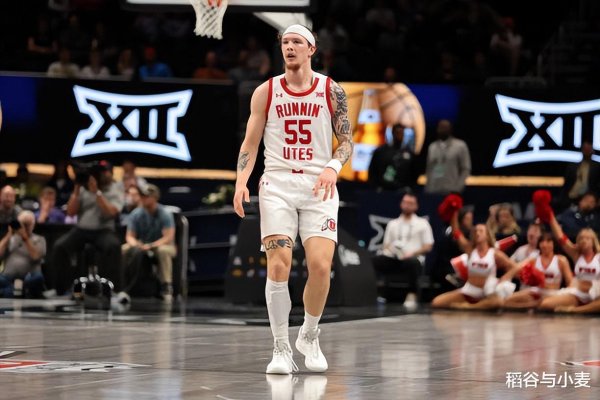
The Heat signed a undraft with a training camp contract. He performed well with the Warriors in the Summer United?